
NonEuclidean Geometry YouTube
Geometry Projecting a sphere to a plane Outline History ( Timeline) Branches Euclidean Non-Euclidean Elliptic Spherical Hyperbolic Non-Archimedean geometry Projective Affine Synthetic Analytic Algebraic Arithmetic Diophantine Differential Riemannian Symplectic Discrete differential Complex Finite Discrete/Combinatorial Digital Convex Computational
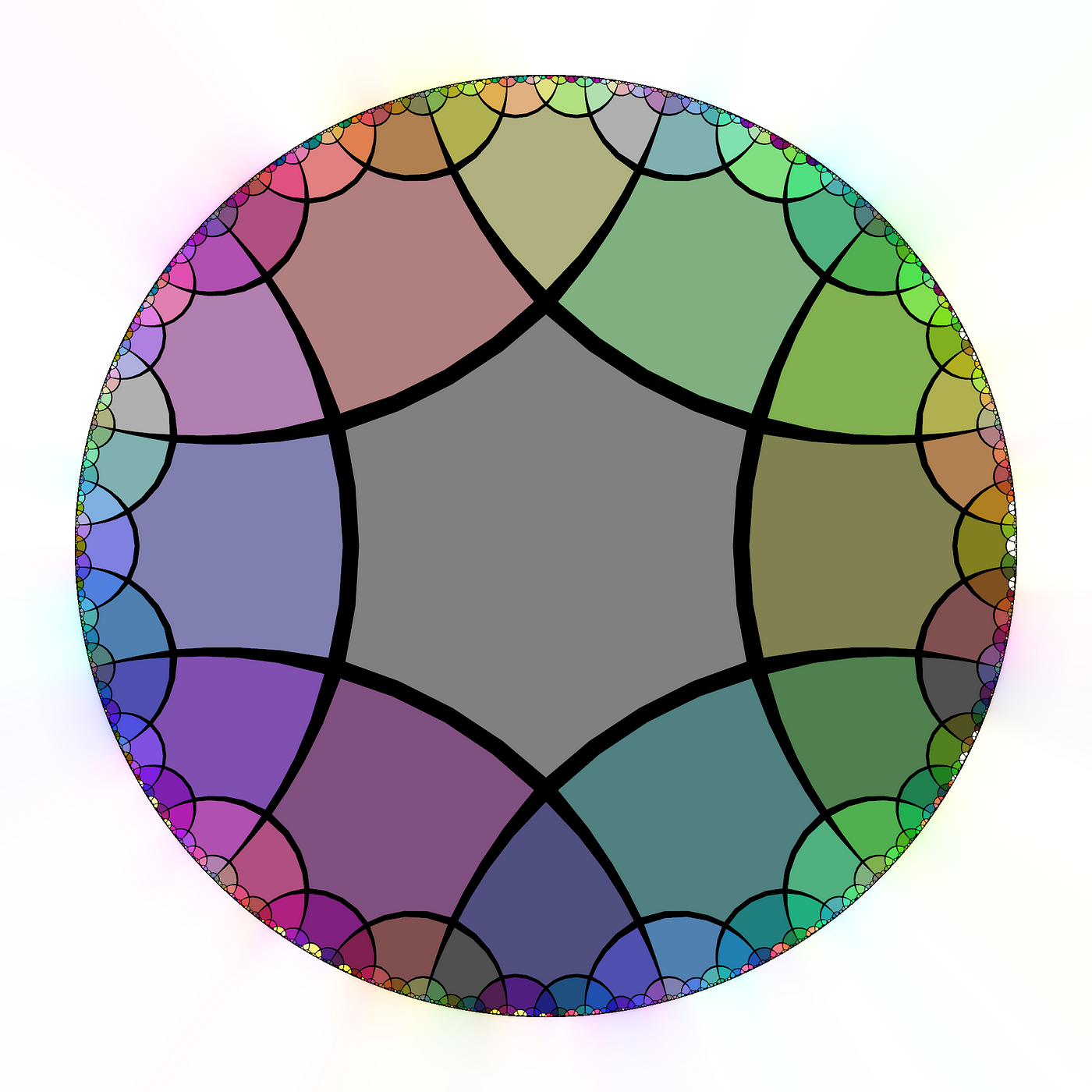
NonEuclidean geometry and games. The term “nonEuclidean” is often used… by Zeno Rogue Medium
Non-Euclidean geometries showed that different systems of geometry could be developed, depending on the assumptions or axioms that were used. The choice of axioms was not a matter of absolute truth but rather a matter of convention or convenience. Therefore, although the axiomatic method was a powerful tool for organizing and systematizing.

NonEuclidean geometry YouTube
Euclidean and Non-Euclidean Geometries Steven G. Krantz & Harold R. Parks Chapter First Online: 01 January 2014 2662 Accesses Abstract Ancient mathematics was motivated by very practical reasoning. What we now call land management and commerce were the overriding considerations, and calculational questions grew out of those transactions.

Euclidean and NonEuclidean geometries Foldable (open). Euclidean geometry, Geometry lessons
This book gives a rigorous treatment of the fundamentals of plane geometry: Euclidean, spherical, elliptical and hyperbolic. The primary purpose is to acquaint the reader with the classical results of plane Euclidean and nonEuclidean geometry, congruence theorems, concurrence theorems, classification of isometries, angle addition and trigonometrical formulae.

PPT Euclidean and NonEuclidean geometries, November 25 PowerPoint Presentation ID3981663
Professor of mathematics, Cornell University, Ithaca, N.Y. Author of Differential Geometry: A Geometric Introduction and Experiencing Geometry in Euclidean, Spherical, and Hyperbolic Spaces. David W. Henderson, Daina Taimina
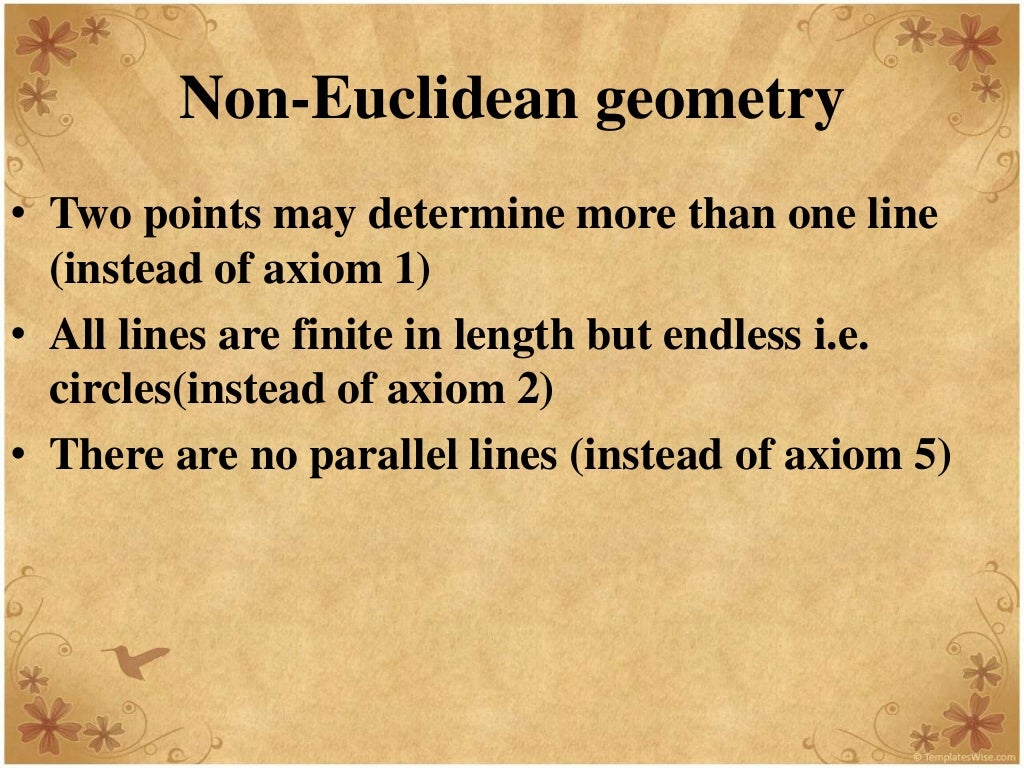
7 euclidean&non euclidean geometry
As such, it provides a fascinating introduction to Euclidean and Non-Euclidean geometry — seamlessly interwoven with themes of an historical, philosophical, scientific and cultural nature. Also, given the clarity of the prose, the excellent standard of its organisation and the attractive presentation, it has to be said that this fourth.

Euclidean & NonEuclidean Geometries Development and History by Marvin Jay Greenberg
This is the definitive presentation of the history, development and philosophical significance of non-Euclidean geometry as well as of the rigorous foundations for it and for elementary Euclidean geometry, essentially according to Hilbert. Appropriate for liberal arts students, prospective high school teachers, math. majors, and even bright.

Supertwisted spirals of layered materials enabled by growth on nonEuclidean surfaces Science
The "flat" geometry of everyday intuition is called Euclidean geometry (or parabolic geometry), and the non-Euclidean geometries are called hyperbolic geometry (or Lobachevsky-Bolyai-Gauss geometry) and elliptic geometry (or Riemannian geometry). Spherical geometry is a non-Euclidean two-dimensional geometry.

PPT Mr. Young’s Geometry Classes, Spring 2005 PowerPoint Presentation ID1274559
non-Euclidean. non-Eu·clid·e·an / ˌnän yoōˈklidēən / • adj. Geom. denying or going beyond Euclidean principles in geometry, esp. in contravening the postulate that only one line through a given point can be parallel to a given line. non-Euclidean geometry, branch of geometry [1] in which the fifth postulate of Euclidean geometry.
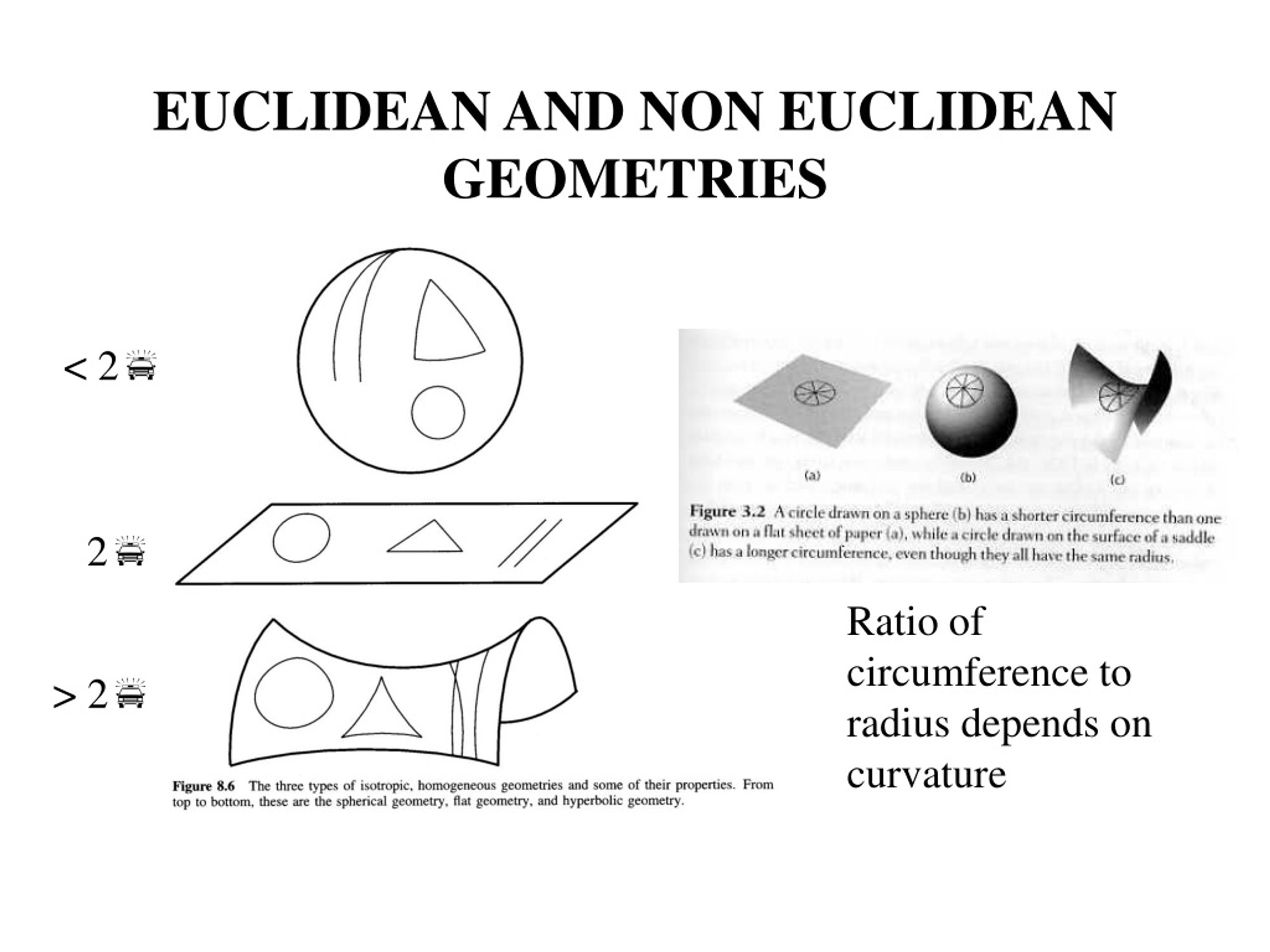
PPT LECTURE 8 PowerPoint Presentation, free download ID669884
Euclidean and Non-Euclidean Geometries. : Marvin J. Greenberg. W. H. Freeman, Aug 15, 2008 - Mathematics - 512 pages. This is the definitive presentation of the history, development and philosophical significance of non-Euclidean geometry as well as of the rigorous foundations for it and for elementary Euclidean geometry, essentially according.

NonEuclidean geometry YouTube
There are two main types of non-Euclidean geometries, spherical (or elliptical) and hyperbolic. They can be viewed either as opposite or complimentary, depending on the aspect we consider. I will point out some of the theoretical aspects in the final sections of these presentation. Hyperbolic geometry and handcrafts

PPT NonEuclidean geometry and consistency PowerPoint Presentation, free download ID2683826
It is called "Non-Euclidean" because it is different from Euclidean geometry, which was developed by an ancient Greek mathematician called Euclid. Some History… The birth of non-Euclidean geometry was REALLY a big deal. It was truly a ground-shaking event, not only in the history of mathematics and but also in philosophy.
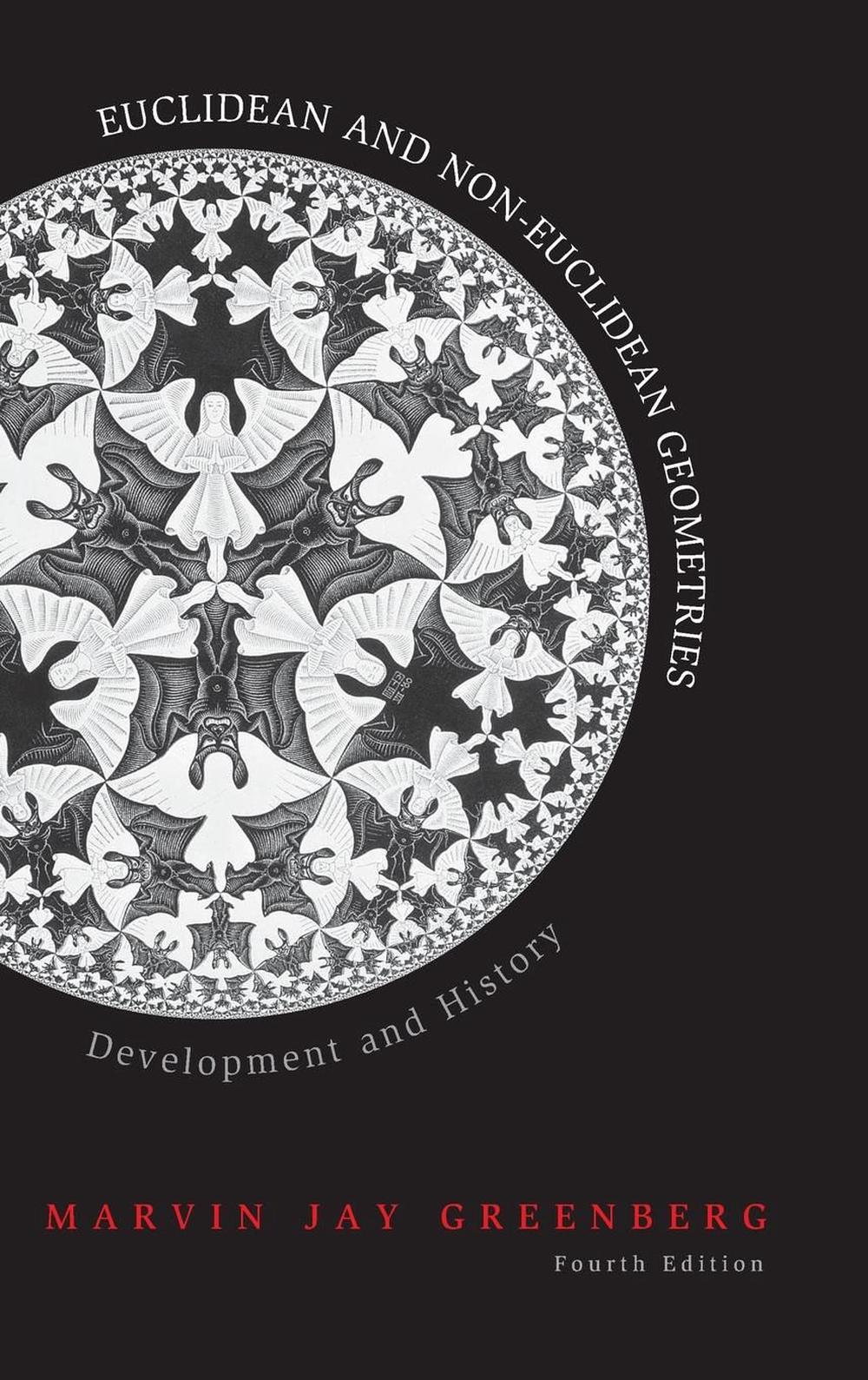
Euclidean and NonEuclidean Geometries Development and History by Marvin Jay Gr 9780716799481
Euclidean geometry mainly refers to plane geometry happening in 2 dimensions. Spherical geometry is an example of a non-Euclidean geometry that deals with curved surfaces. What is an.

Euclidean and NonEuclidean Geometry An Analytic Approach by Patrick J. Ryan
Chapter 1 Introduction Yes, there are hundreds of Geometry textbooks written and published. What is the reason for this one then? The present lecture notes is written to accompany the course math551, Euclidean and Non- Euclidean Geometries, at UNC Chapel Hill in the early 2000s.
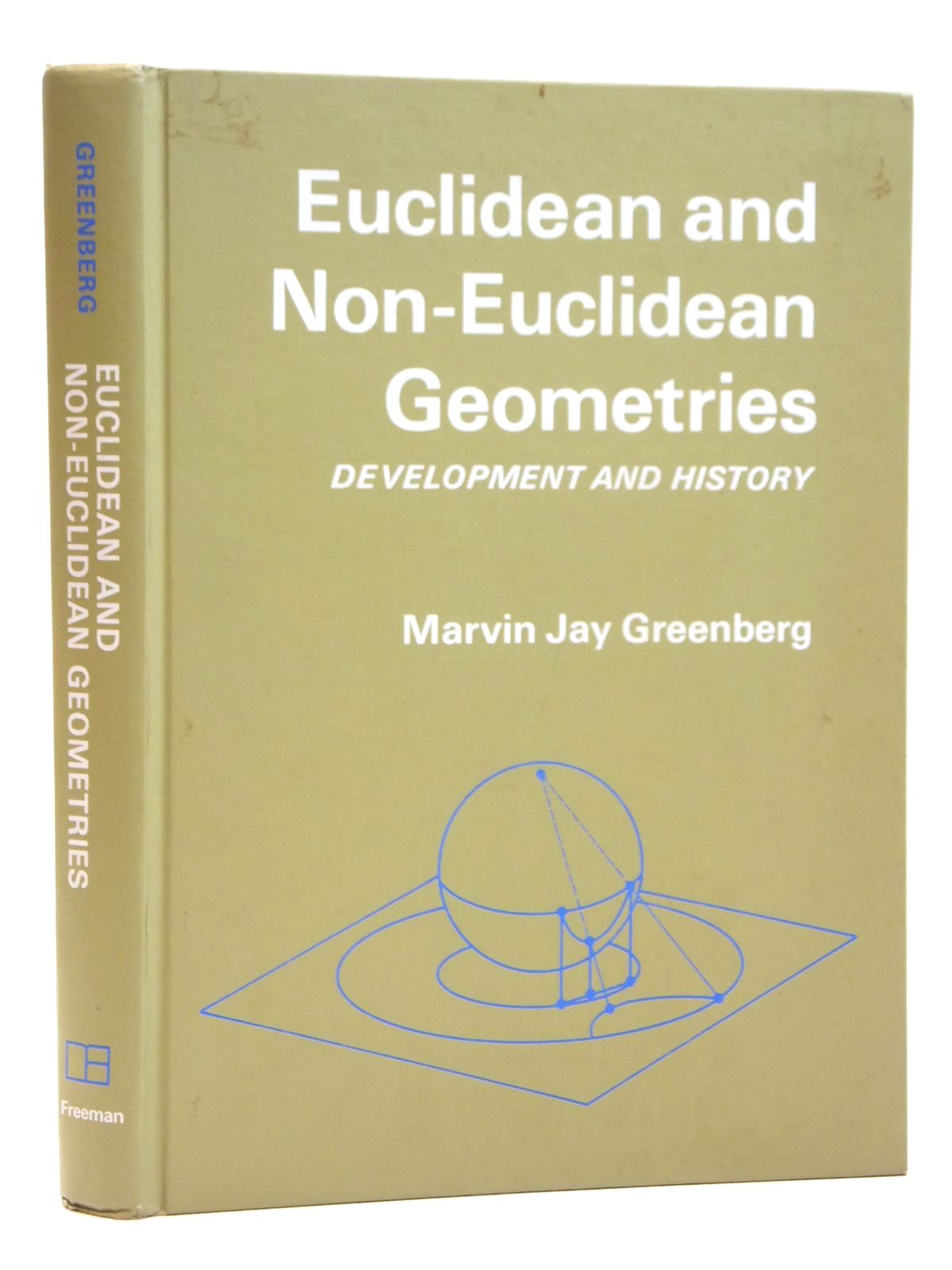
EUCLIDEAN AND NONEUCLIDEAN GEOMETRIES DEVELOPMENT AND HISTORY written by Greenberg, Marvin Jay
Abstract We intend to construct these geometries using a slightly modified Hilbert's axioms system in the same way as it is done in [7-10]. An interesting thing is related to the fact that it exists a common part for Euclidean and Non-Euclidean Geometry, the so called Absolute Geometry.

Non euclidean geometry Fun math, Math patterns, Math tutorials
In the literal sense — all geometric systems distinct from Euclidean geometry; usually, however, the term "non-Euclidean geometries" is reserved for geometric systems (distinct from Euclidean geometry) in which the motion of figures is defined, and this with the same degree of freedom as in Euclidean geometry.